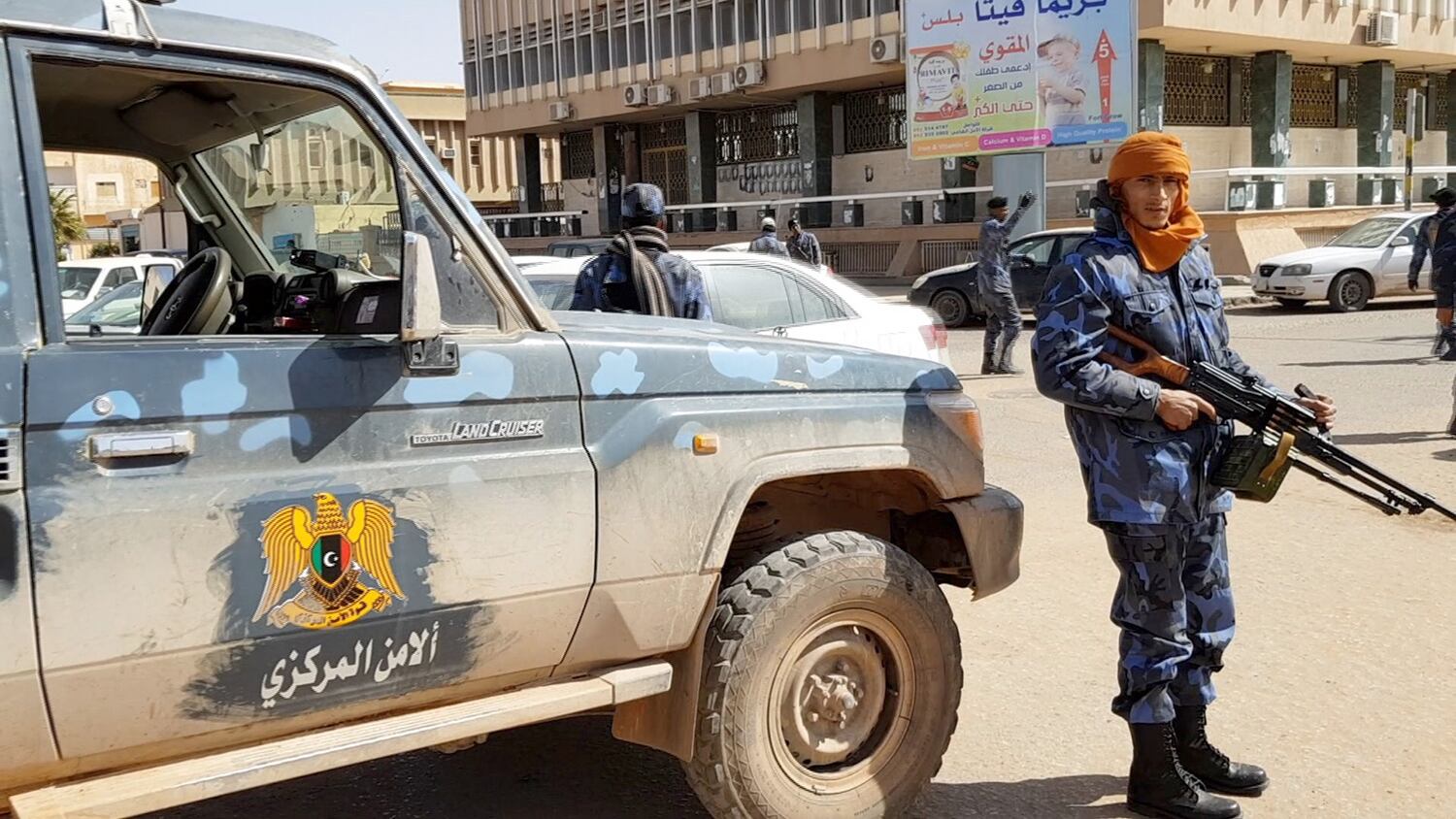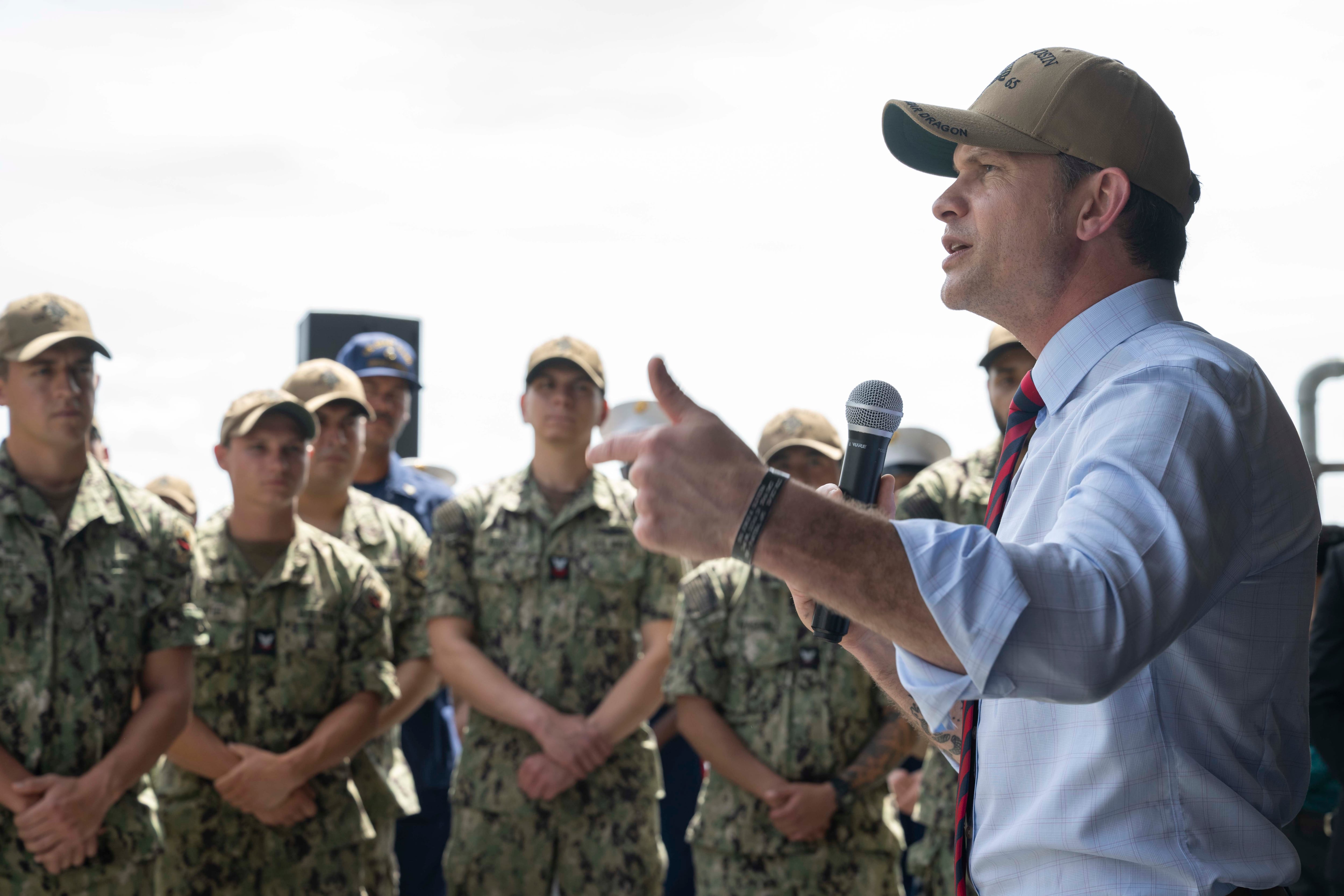U.S. Africa Command carried out an airstrike in Libya Thursday that killed 17 ISIS members — marking the third airstrike the command has conducted in the span of a week in Libya.
The strike, which targeted ISIS-Libya jihadis in southwest Libya, follows concern from AFRICOM about violent extremists taking advantage of Libya’s political instability, and using the situation as an opportunity for growth.
“This ongoing campaign against ISIS-Libya demonstrates that U.S. Africa Command persistently targets terrorist networks that seek to harm innocent Libyans,” U.S. Navy Rear Adm. Heidi Berg, AFRICOM’s director of intelligence, said in a media release. “We will continue to pursue ISIS-Libya and other terrorists in the region, denying them safe haven to coordinate and plan operations in Libya.”
In August, AFRICOM spokesman Air Force Col. Chris Karns told the Military Times that Libya’s eight-year civil war could provide “oxygen” to existing terrorist elements. He warned the conflict in the region could allow terrorist groups to increase their recruitment and basic training efforts.
AFRICOM has consistently targeted these violent extremist groups in recent years, and conducted almost 500 airstrikes in 2016 to eliminate them. Seven airstrikes were conducted in 2017, and six were conducted in 2018.
But in 2019, AFRICOM had not conducted any airstrikes in Libya — until Sept. 19. Karns said in August the pause in airstrikes was because the extremist threat had been “considerably degraded” before tensions in Libya intensified earlier this year.
However, signs of active recruitment and training led AFRICOM to carry out its first strike in Libya in 2019, Karns said on Sept. 20.
“It is important to ensure the terror elements do not use the ongoing conflict in Libya to regenerate or increase in strength,” Karns said last week. “There was evidence reflecting active recruitment, training, and growth.”
Another strike was also conducted on Tuesday against members of ISIS-Libya that resulted in 11 ISIS casualties, AFRICOM said.
Current assessments indicate no civilians were injured or killed in any of the airstrikes, according to AFRICOM.
The U.S. has had a small number of troops in Libya since 2011 after dictator Moammar Gadhafi was overthrown. U.S. troops’ objective was to eliminate violent extremist groups like the Islamic State and al-Qaida-linked militants who were conducting attacks and recruitment.
But due to rising tensions in April, U.S. forces were pulled after Field Marshal Khalifa Hifter’s Libyan National Army launched and offensive against the U.S. and United Nations-backed government in Tripoli.
Hifter, a former CIA asset who was exiled during Gadafi’s leadership, is a U.S. citizen who moved to Langley, Virginia in the 1990s following his exile. He returned to Libya in 2011.
Meanwhile, AFRICOM and the United Nations have consistently emphasized the significance of securing a political solution in Libya.
“It is no exaggeration to say that the stability and civilian nature of Libya is a critical matter, not only for Libya…but for the region and the world” Fayez al-Sarraj, the president of the Presidency Council of the Government of National Accord, told the United Nations General Assembly on Wednesday.
Karns told the Military Times this week that U.S. troops have not returned to Libya since their withdrawal in the spring.





